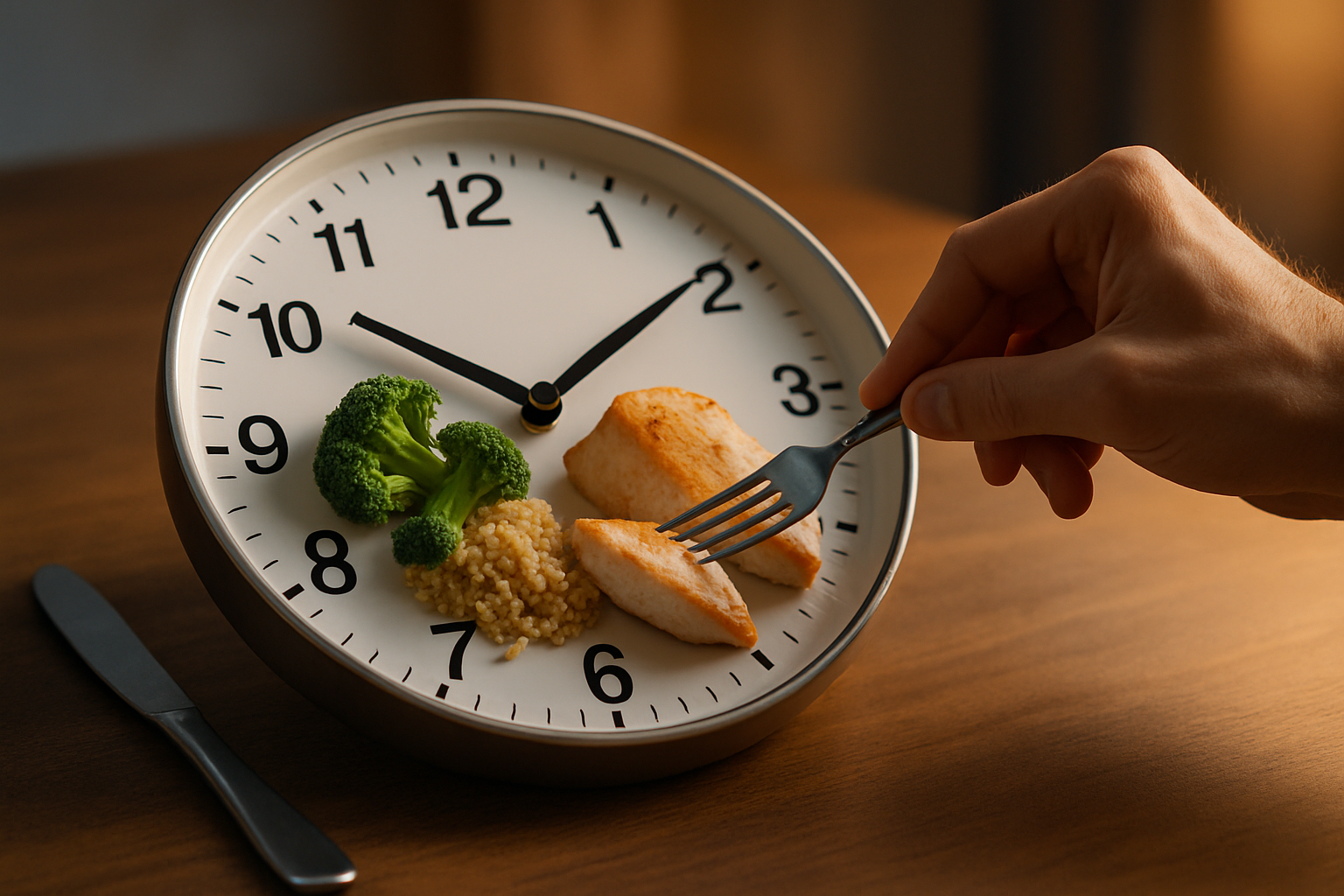Nutritional Chronotherapy: Aligning Meals with Your Body Clock
Imagine a world where the timing of your meals is just as crucial as their content. What if you could optimize your health by syncing your eating schedule with your body's natural rhythms? Welcome to the fascinating realm of nutritional chronotherapy, a cutting-edge approach that's revolutionizing our understanding of diet and well-being.

The Science Behind Nutritional Chronotherapy
Our bodies operate on a complex system of internal clocks, collectively known as the circadian rhythm. This 24-hour cycle regulates various physiological processes, including hormone production, metabolism, and digestion. Recent research has revealed that these internal clocks are not limited to the brain but are present in nearly every cell of our body, including those in the digestive system.
The discovery of peripheral clocks in the gut has led to a paradigm shift in how we view the relationship between food timing and health. Scientists have found that the timing of meals can significantly influence the expression of genes involved in metabolism, potentially affecting everything from weight management to disease prevention.
Chronotypes and Eating Patterns
One of the key aspects of nutritional chronotherapy is understanding your individual chronotype – your body’s natural preference for sleeping and waking times. Chronotypes are typically classified into four categories: bears (intermediate), lions (early risers), wolves (night owls), and dolphins (light sleepers).
Your chronotype can influence your optimal eating schedule. For instance, lions may benefit from earlier meal times, while wolves might find later dinners more suitable. By aligning your meal timing with your chronotype, you can potentially enhance nutrient absorption, improve energy levels, and support better sleep quality.
Meal Timing and Metabolic Health
The timing of meals plays a crucial role in metabolic health. Studies have shown that eating in sync with the body’s circadian rhythm can lead to improved insulin sensitivity, better blood sugar control, and more efficient fat burning.
One particularly interesting finding is the concept of time-restricted feeding (TRF). This approach involves limiting food intake to a specific window of time each day, typically 8-12 hours. Research suggests that TRF can lead to numerous health benefits, including weight loss, improved cardiovascular health, and enhanced cellular repair processes.
Optimizing Nutrient Intake Through Timing
Nutritional chronotherapy goes beyond just meal timing – it also considers the optimal times for consuming specific nutrients. For example, research indicates that protein consumption in the morning can lead to greater muscle synthesis and improved satiety throughout the day. Similarly, complex carbohydrates may be better tolerated in the earlier part of the day when insulin sensitivity is at its peak.
Conversely, consuming certain foods or nutrients at the wrong time can disrupt our circadian rhythms. For instance, caffeine consumption in the late afternoon or evening can interfere with sleep patterns, while high-fat meals close to bedtime may lead to disrupted sleep and impaired overnight fat metabolism.
Implementing Nutritional Chronotherapy in Daily Life
Adopting a nutritional chronotherapy approach doesn’t mean adhering to a rigid, one-size-fits-all eating schedule. Instead, it’s about understanding your body’s natural rhythms and making informed choices about when and what to eat.
Start by observing your natural energy patterns and hunger cues throughout the day. Are you naturally hungry shortly after waking, or do you prefer to eat later in the morning? Do you experience an energy slump in the afternoon that could be mitigated by adjusting your lunch timing?
Gradually shift your meal times to align with your body’s natural rhythms. This might mean having your largest meal earlier in the day when your metabolism is most active, or spacing your meals to support stable blood sugar levels throughout the day.
Chrono-Nutrition Insights
-
Morning light exposure can help regulate your circadian rhythm and influence meal timing preferences
-
Eating your last meal at least 3 hours before bedtime may improve sleep quality and overnight metabolism
-
Consuming protein-rich foods in the morning can enhance muscle protein synthesis throughout the day
-
Timing carbohydrate intake to coincide with periods of physical activity can improve energy utilization
-
Drinking water upon waking can jumpstart your metabolism and support better hydration throughout the day
As we continue to unravel the intricate connections between our body clocks and nutrition, nutritional chronotherapy stands at the forefront of personalized health optimization. By aligning our eating patterns with our internal rhythms, we have the potential to unlock new levels of well-being, energy, and vitality. Remember, the journey to optimal health is not just about what we eat, but when we eat it. Embrace the power of timing, and let your body’s natural rhythms guide you towards a healthier, more balanced life.





